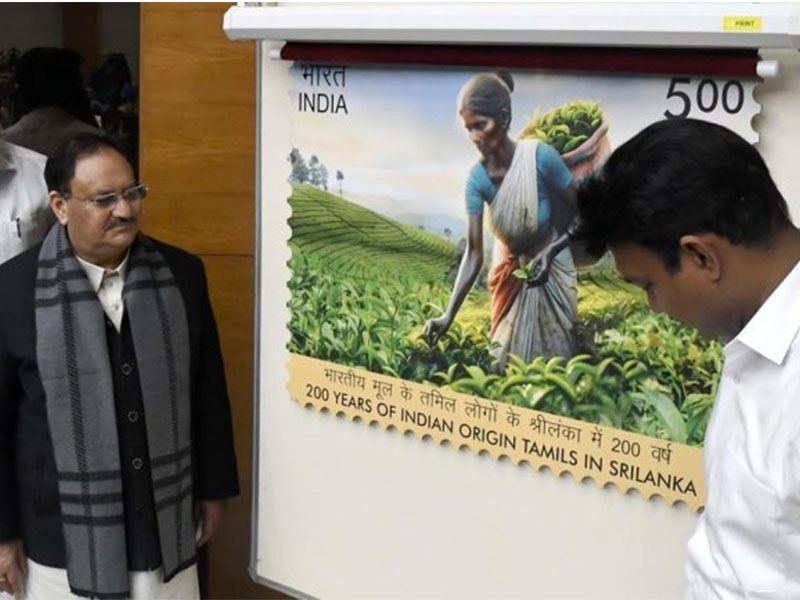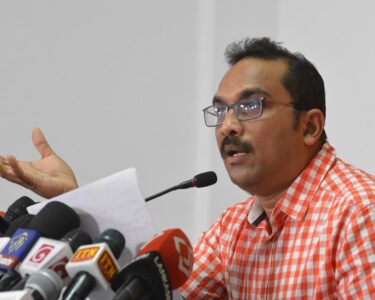New Delhi has issued a commemorative stamp on the 200th anniversary of arrival of Indian-origin Tamils in Sri Lanka.
It was released by the President of India’s ruling Bharatiya Janata Party, Mr. J. P Nadda in the presence of the BJP’s Tamil Nadu state chief, Mr. K. Annamalai and other dignitaries from the Bharatiya Janata Party and Sri Lanka’s Ceylon Workers’ Congress.
In a move laden with both historical significance and potential political gain, BJP national president Jagat Prakash Nadda released a commemorative stamp on Saturday, marking 200 years of Indian-origin Tamils living in Sri Lanka. The ceremony, held at the BJP’s central office, saw Nadda acknowledge the “extreme hardships” faced by these Tamils who were brought to Sri Lanka by the British during the colonial era. He further pledged the party’s and the government’s unwavering commitment to their welfare and prosperity
This gesture comes less than a year before the 2024 Lok Sabha elections, and it is hard to ignore the potential electoral calculations behind it. The Tamil community holds significant clout in several key constituencies, and the BJP has long sought to woo them. The stamp release, along with Nadda’s emphasis on the Modi government’s initiatives like housing projects and healthcare schemes in Sri Lanka, could be seen as a targeted outreach to secure their support.
However, the move also carries symbolic weight. The Indian-origin Tamil community in Sri Lanka has faced its share of discrimination and marginalization over the years.
Critics, however, raise questions about the timing and motive behind the gesture. They argue that the BJP’s record on minority rights within India itself isn’t exemplary, and the party’s sudden surge of concern for Indian-origin Tamils appears opportunistic. They point to the lack of concrete policy changes or substantial initiatives undertaken by the government to address the real challenges faced by the community in Sri Lanka.
Critics, however, raise questions about the timing and motive behind the gesture. They argue that the BJP’s record on minority rights within India itself isn’t exemplary, and the party’s sudden surge of concern for Indian-origin Tamils appears opportunistic. They point to the lack of concrete policy changes or substantial initiatives undertaken by the government to address the real challenges faced by the community in Sri Lanka.







